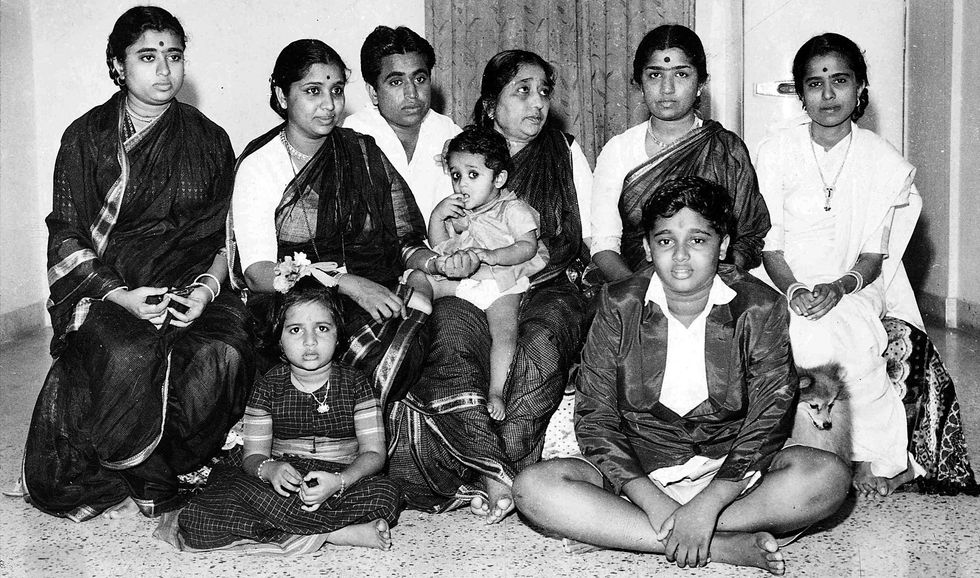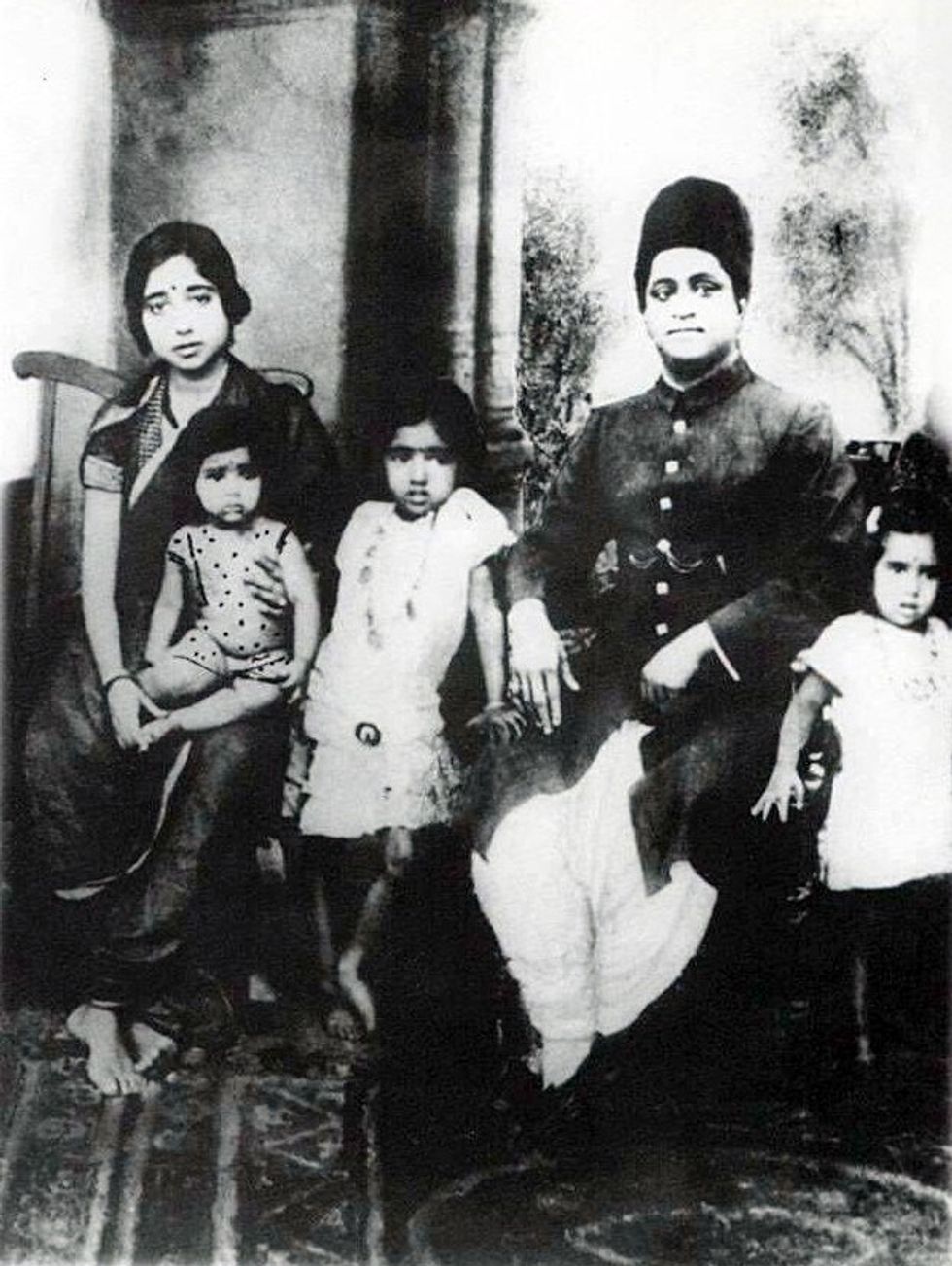LATA MANGESHKAR once said that her singing wasn’t a miracle or anything
extraordinary, and whatever happened was God’s will as “many have sung better than me, but perhaps they didn’t get as much as I did”.
She was also of the view that people must not let success go to their head.
“I am very grateful to God that my success hasn’t had a detrimental effect on
me. My head could have turned; I could have thought no end of myself,” she said,
adding, “If I am gifted, it is by the grace of God. Who could have imagined I would
be so famous?”
“It is His kindness alone. So how could I lose my head?”
These remarks were made in a book Lata Mangeshkar...in her own voice, written by TV producer and author Nasreen Munni Kabir and published by Niyogi Books in 2009.

The book was based on Lata in Her Own Voice, a six-part documentary series
that Kabir directed in 1991 and was produced by Hyphen Films Ltd for Channel 4
TV in the UK.
Based on Kabir’s conversations with the legendary singer, the book sheds light
on her work and life.
Lata recalled making excuses when she was learning how to sing.
“I was very young and preferred to play. I pretended to have a headache or stomach ache. It was always something,” she said.
“I would run from the room where Baba (her father) taught me. Sometimes he
would catch hold of me and bring me right back. I would protest saying, ‘I feel
shy to sing in front of you. I’m scared.’
“One day Baba sat me down and said, ‘I know I’m your father. But a father is like
a guru too. Always remember – whether a guru or father is teaching you – when you sing, you must think to yourself you will sing better than him. Never think how
can I sing in his presence? Remember this. You must excel your guru.’ I have
never forgotten Baba’s words.”

Her father Deenanath Mangeshkar was a musician and theatre artist. Lata said
film music wasn’t hugely appreciated at home when she was growing up, with the
Mangeshkar family preferring to listen to classical music.
“Baba didn’t like films. We weren’t allowed to go to the movies, except for films
made by the Marathi filmmaker Bhalji Pendharkar and Calcutta’s New Theatres.
Baba believed their productions had good music and sensible stories. He always liked (KL) Saigal sahib and so did I. At home I sang his songs, especially Ek
Bangala Bane Nyaara from the film President. I was allowed to sing Saigal sahib’s
songs at home, but no other film songs. Nor did I care much for them,” she said.
So how did she change the mind of her father, who didn’t like the idea of acting in
films or singing for them, but who loved theatre, instead?
As a child, Lata once persuaded one of her father’s disciples to allow her to portray a character in a play. He reluctantly agreed and she played the role. But when
her father became aware of it, he was furious. His wife, however, tried to calm him
down and pleaded that the child should be allowed to have her way.
“He didn’t say another word to me. I don’t know what came over him, but soon after that, he asked the playwright Kothiwale, who had previously worked with him, to write a children’s play for me. Kothiwale wrote Gurukul in which I played Shri Krishna and my sister Meena was Sudama,” she recalled.
She went on to play smaller roles in films after her father’s death when she was 13 to support the family before venturing into full-time singing.
Among her other loves was photography. “In 1946, I was on an outdoor shoot
and took a picture of someone who was standing by a river. I became intrigued by
photography. I told Madhavrao Shinde, the film editor, about my interest and he
taught me the basics – how to load film and the kind of camera I should buy. The
first stills camera I ever owned was a Rolleiflex. I bought it for Rs. 1,200,” she said.
But Lata could not always enjoy photographing landscapes as “every time I stepped out of the car to take a picture, someone or other would recognise me and start talking to me. Soon a crowd would gather and I could barely see the landscape beyond the wall of fans”.
She was also an avid cricket fan.
“The first Test match I saw was with my sister Meena at the Brabourne Stadium in
Bombay in 1945 or maybe 1946 – it was a match between Australia and India.”
Some of the players she liked and who she saw play included Sir Gary Sobers and Rohan Kanhai (both from the West Indies); Richie Benaud, Ray Lindwall, Alan Davidson and Neil Harvey (all from Australia) and India stars such as Mushtaq Ali, Vinoo Mankad, Vijay Merchant, Mansoor Ali Khan Pataudi, Sunil Gavaskar and Sachin Tendulkar.
Lata even had a signed photograph of Australian cricket superstar Sir Don Bradman, on which he wrote: “To Lata!”



















 Miranda Priestly’s icy elegance and Andy Sachs' transformation set the standard for modern power dressingJio Hotstar Screengrab
Miranda Priestly’s icy elegance and Andy Sachs' transformation set the standard for modern power dressingJio Hotstar Screengrab Audrey Hepburn’s timeless little black dress remains a symbol of sophistication and styleYoutube Screengrab
Audrey Hepburn’s timeless little black dress remains a symbol of sophistication and styleYoutube Screengrab Cher Horowitz’s yellow plaid suit redefined 90s teen fashion with its bold preppy charmYoutube Screengrab
Cher Horowitz’s yellow plaid suit redefined 90s teen fashion with its bold preppy charmYoutube Screengrab Lady Gaga’s extravagant Gucci ensembles brought vintage luxury and dramatic glamour back to the forefrontPrime Video
Lady Gaga’s extravagant Gucci ensembles brought vintage luxury and dramatic glamour back to the forefrontPrime Video